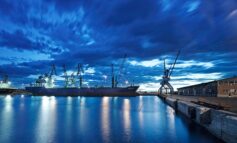Research on port hierarchies within a maritime region is crucial for comprehending the dynamics of seaborne trade and the broader trends within the maritime sector and related supply chains.
In their latest port study, PortEconomics members Eliana Barleta and Thanos Pallis investigate the evolution of the Latin America and the Caribbean (LAC) container ports and regional sub-systems from 2000 to 2022, analyzing traffic dynamics, shifts in port throughput rankings, and market concentration trends in and among the different coastal regions.
Conceptually, this analysis benefits from the notion of evolutionary phases, revealing the stages of a port system’s development. Methodologically, 49 LAC ports of international interest are categorized into different coastal regions and tiers based on throughput sizes. Various metrics, including the Gini coefficient, Lorenz curve, Herfindahl-Hirschman Index (HHI), and Kendall Tau (τ), assess port hierarchy and related mobility in LAC ports since 2000.
The observed shifts in the hierarchy and market structures, coupled with the fluctuating positions of critical ports, underscore the transition that LAC container ports dynamics experienced in the 21st century. Following a particularly dynamic and volatile evolution observed in the 2000s, the financial crisis of 2008/09 was a critical juncture leading to the transition of the LAC port dynamics from the ‘emerging’ to the ‘maturity’ phase. On the contrary, the pandemic (2019) has not affected the pre-existing hierarchy or the moderate market concentration that was already in progress.
The LAC region comprises port sub-systems (coastal ranges) subjected to different tendencies towards (de)concentration, yet mobility in port rankings within each sub-system decreases.
The study also reveals the coexistence of this transition with a structural transformation of port governance structures, i.e., granting of concessions of operations to third parties. In 20 of these ports and the above-average mobility of ports are operated by Global Terminal Operators (GTOs), and calls for further research on the (non) causality of these phenomena.
You might read or download the final version here.
To cite the article: Eliana P. Barleta, & Athanasios A. Pallis (2024). Hierarchy and mobility of Latin America and Caribbean container ports, Journal of Transport Geography, Volume 121, 104011, https://doi.org/10.1016/j.jtrangeo.2024.104011.












